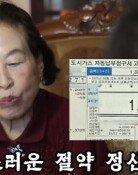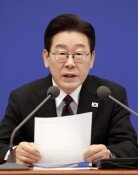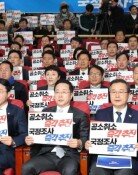GIA Wont Accept Dong-A`s Request for Information Disclosure
GIA Wont Accept Dong-A`s Request for Information Disclosure
Posted June. 08, 2007 04:36,
Criticism is arising on the infringement of the right to know as the Government Information Agency (GIA) refused to disclose original materials on the operation of press rooms obtained through a Korean embassy abroad on the grounds of confidentiality.
Dong-A Ilbo recently requested the disclosure of the original materials on media room operations from the GIA, but the agency said on June 7, Dong-A Ilbos request will not be accepted either. An official of the GIA said on the same day, Two citizens requested the same information, but recently a decision was made not to disclose the information on the grounds of confidentiality, and they will be officially notified soon.
The GIA articulated several reasons for the nondisclosure: the Ministry of Foreign Affairs and Trade, which authored the materials, categorized them as confidential; if disclosed, they could flare up as a diplomatic issue as all the important details have already been disclosed. The GIA also did not accept the request for partial disclosure in which diplomatically sensitive issues, including the names of reporters, were involved.
However, the GIAs explanation on confidentiality regarding related foreign cases to justify its so-called measures to advance the reporting support system is hard to fathom, according to many.
The GIA said, According to investigations via each Korean embassy abroad, Japan is the only country that operates Korean-style press rooms, announcing on May 22 measures to advance the reporting support system centering on shutting down the press rooms.
Nevertheless, the recent media report casts doubt that the GIA supposedly disclosed misleading information on how press rooms are operated abroad. For example, each government agency in the U.S. operates press rooms.
Accordingly, debates are focusing on the accuracy of the investigations by Korean embassies abroad and possible selective or distorted announcements by the GIA on the investigation outcomes gained from each embassy.
Furthermore, as the GIA refused to comply with the information disclosure requests despite its repeated remarks on its plan to complement the side effects of shutting down press rooms and limited contact with public officials by actively encouraging requests for information disclosure, it faces much criticism.
Many critics point out that the concern that the government will selectively withhold information has been realized.
Senior researcher Jeon Jin-han at the Korea Research Institute for Korean Archives and Records said, Up until now, confidentiality has been arbitrarily dubbed by the government in order to hide unfavorable information on many occasions. In addition, weak legal grounds led to deletion of the clause in the Secret Protection Law, which was proposed by the National Intelligence Service.
Kim Yeong-seok, dean of the Graduate School of Journalism and Mass Communications at Yonsei University, said, The flow of the time demands disclosure of as much information as possible by the government and those in power, adding, No access to information besides the official channels would deal a blow to the public.
leon@donga.com







